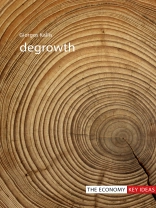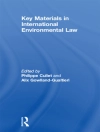The term “degrowth” has emerged within ecological and other heterodox schools of economics as a critique of the idea (and ideology) of economic growth. Degrowth argues that economic growth is no longer desirable – its costs exceed its benefits – and advocates a transformation of economies so that they produce and consume less, differently and better.
Giorgos Kallis provides a clear and succinct guide to the central ideas of degrowth theory and explores what it would take for an economy to transition to a position that enables it to prosper without growth. The book examines how mainstream conceptualizations of the economy are challenged by degrowth theory and how degrowth draws on a multifaceted network of ideas across disciplines to shed new light on the economic process. The central claims of the degrowth literature are discussed alongside some key criticisms of them. Whether one agrees or disagrees with degrowth’s critique of economic growth, Kallis shows how it raises fundamental questions about the workings of capitalism that we can no longer afford to ignore.
Tabella dei contenuti
1. What is degrowth?
2. The economics of degrowth
3. Economic growth from a degrowth perspective
4. The case for degrowth
5. The utopia of degrowth
6. Controversies, debates and future research
Circa l’autore
Giorgos Kallis is Professor of Ecological Economics and Political Ecology at ICTA, Autonomous University of Barcelona. He has been a Leverhulme visiting professor at SOAS, University of London and a Marie Curie International Fellow at the University of California, Berkeley. He is co-editor of Degrowth: A Vocabulary for a New Era (2014).












